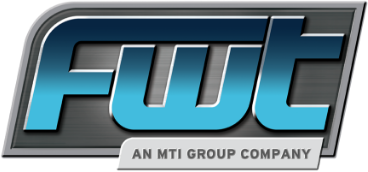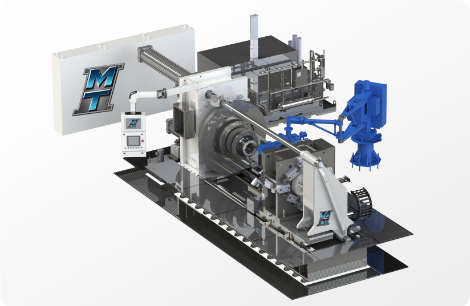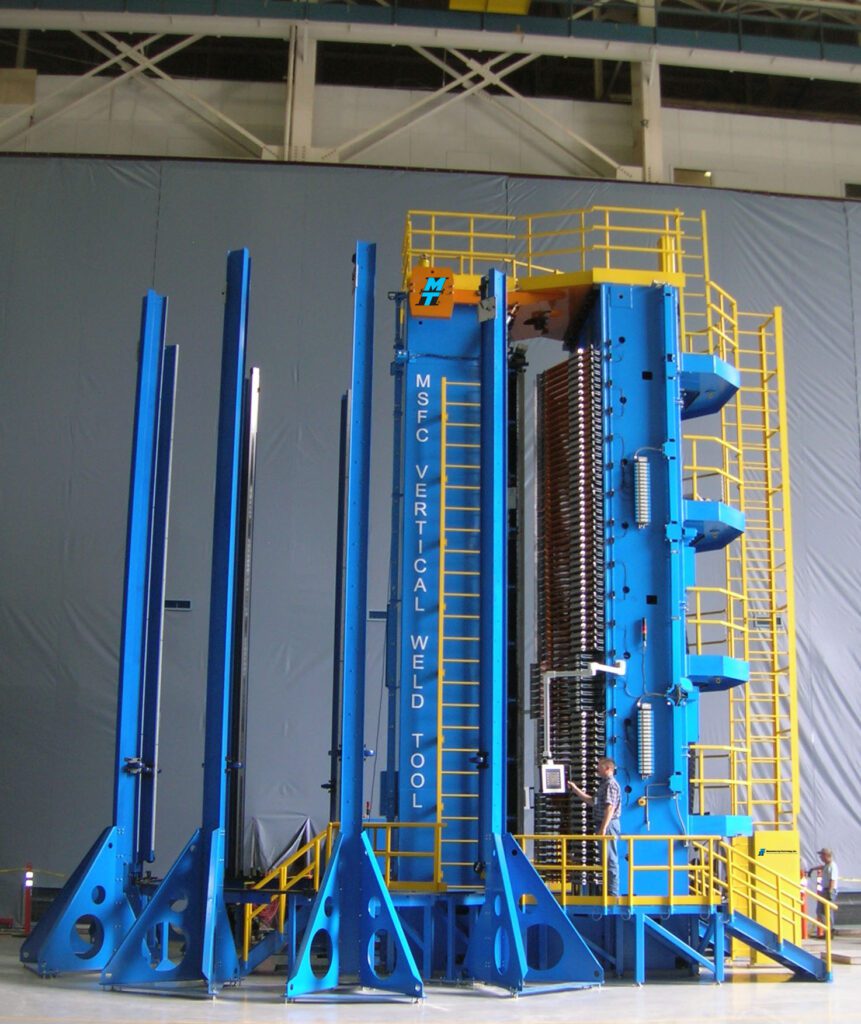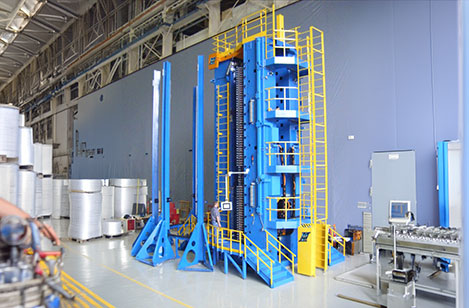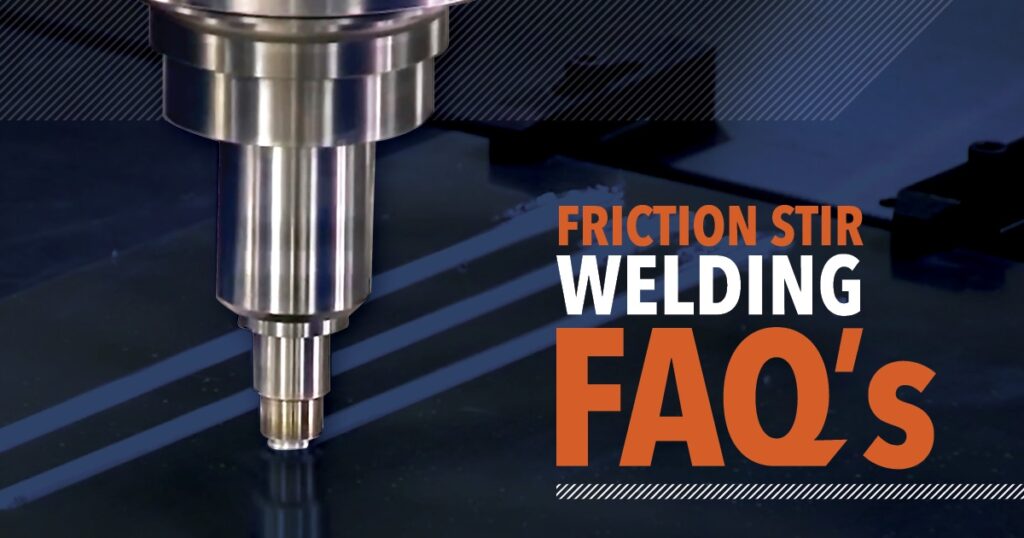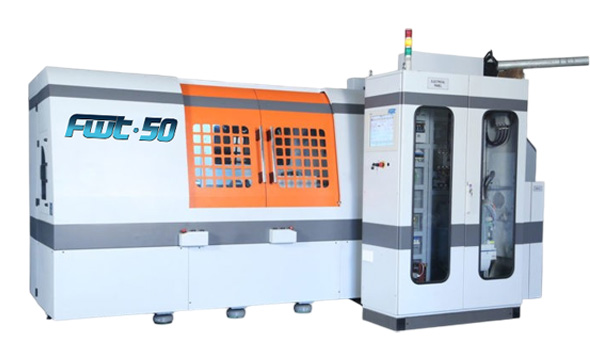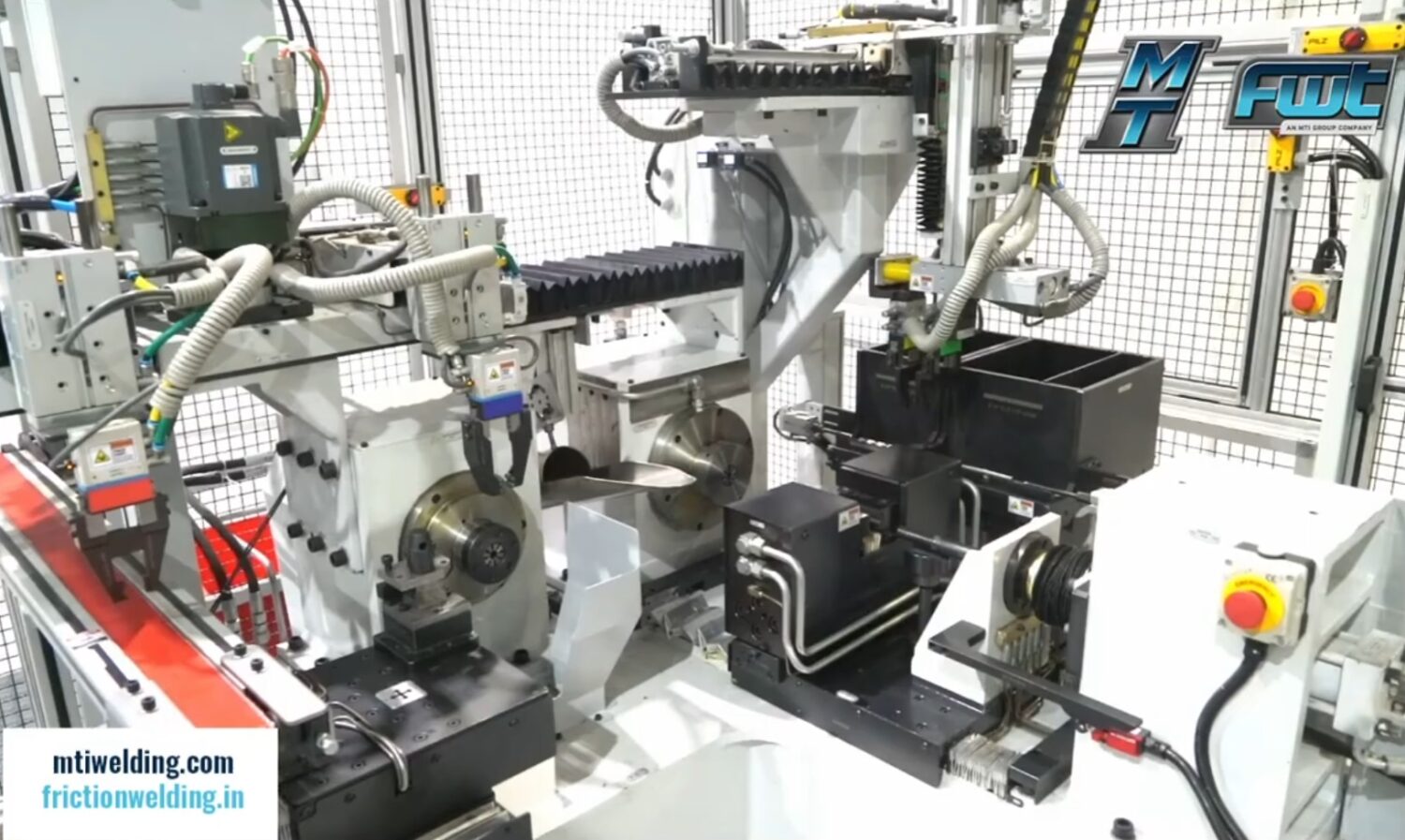Design, Development, and Manufacturing of Spacecraft and Global Systems
Friction Welding for Astrospace Components
Meet the Welding Standards for the Astrospace Industry
FWT provides unparalleled expertise and state-of-the-art solutions for astronautic projects worldwide. Our cutting-edge welding techniques effectively address the critical challenges faced in the astronautics sector, including the demand for exceptionally strong, reliable joints that can withstand extreme environments and the seamless integration of dissimilar metals.
Leveraging advanced friction welding technology, we create precise, high-integrity bonds that meet the stringent quality standards required for space-bound components. From rocket engines to structural elements, our solutions empower manufacturers to optimize performance, reduce material waste, and enhance safety across various mission-critical applications. FWT’s commitment to innovation and excellence makes us a preferred partner for organizations aiming to push the boundaries of space exploration and ensure long-term success in one of the most demanding industries.
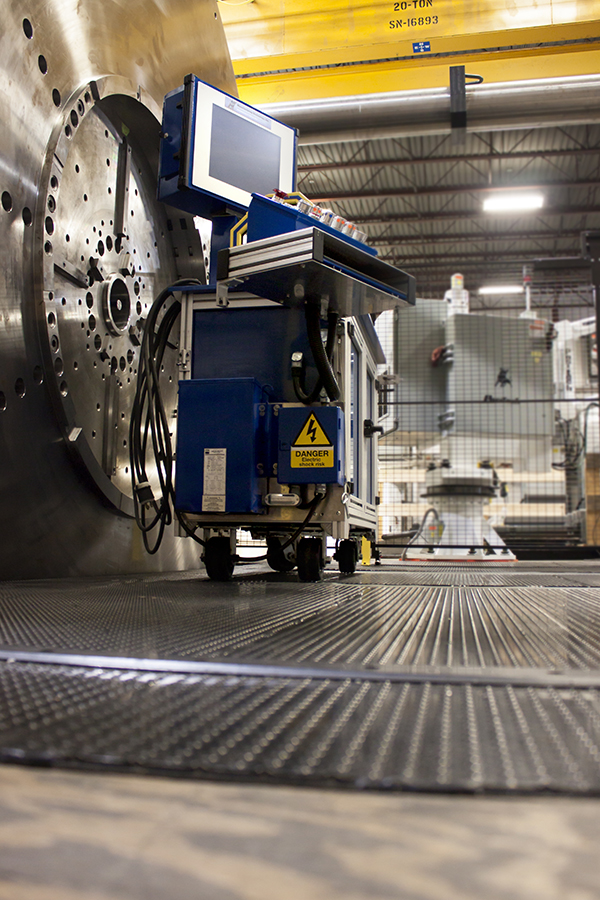
The MTI Group’s Inertia Model 40 “table-top” friction welder used to produce Astrospace steam tubes.
Advantages & Benefits
Propelling Astrospace Innovation to New Frontiers
Our advanced friction welding technologies are pushing the boundaries of Astrospace engineering. Our innovative solutions offer unparalleled capabilities in material joining, weight reduction, and component shaping, enabling the creation of spacecraft that are stronger, lighter, and more efficient for the challenges of space exploration.
(NNS/Close Contouring)
Bimetallic Joining
Friction Welding has the broadest capabilities of any welding method for joining dissimilar materials. In the Astrospace industry, it is essential that welds are strong enough to withstand the harsh temperatures and environment of space travel.
Lightweighting
The more a spacecraft weighs, the more fuel it needs to operate. Lightweighting can reduce the overall weight of the spacecraft, reducing costs and boosting fuel efficiency. Lightweighting is achieved by utilizing bimetallic combinations so that you only use the expensive material where it is absolutely critical.
Near-net Shape Components (NNS/Close Contouring)
Near-net shape friction welding helps the astrospace industry by producing components that are closer to their final (net) shape, significantly reducing the need for extensive post-weld machining and material removal. This leads to lower material costs and faster production times, improving overall efficiency. Additionally, the process results in stronger, more reliable joints, which are critical for the safety and performance of astrospace components.
R&D for Specialized Projects
For the astrospace industry, friction welding’s ability to work with advanced, unique, and challenging materials is a game-changer, enabling the development of high-performance, lightweight components essential for space missions. This is achieved through the solid-state nature of friction welding, which joins materials without melting them, preserving their properties and avoiding defects. The process supports cutting-edge research and development by allowing the reliable joining of dissimilar and exotic materials often required in astrospace applications. Consequently, it enhances the structural integrity and durability of spacecraft components, meeting the rigorous demands of space exploration.
Friction Welding has the broadest capabilities of any welding method for joining dissimilar materials. In the Astrospace industry, it is essential that welds are strong enough to withstand the harsh temperatures and environment of space travel.
The more a spacecraft weighs, the more fuel it needs to operate. Lightweighting can reduce the overall weight of the spacecraft, reducing costs and boosting fuel efficiency. Lightweighting is achieved by utilizing bimetallic combinations so that you only use the expensive material where it is absolutely critical.
Near-net shape friction welding helps the astrospace industry by producing components that are closer to their final (net) shape, significantly reducing the need for extensive post-weld machining and material removal. This leads to lower material costs and faster production times, improving overall efficiency. Additionally, the process results in stronger, more reliable joints, which are critical for the safety and performance of astrospace components.
For the astrospace industry, friction welding's ability to work with advanced, unique, and challenging materials is a game-changer, enabling the development of high-performance, lightweight components essential for space missions. This is achieved through the solid-state nature of friction welding, which joins materials without melting them, preserving their properties and avoiding defects. The process supports cutting-edge research and development by allowing the reliable joining of dissimilar and exotic materials often required in astrospace applications. Consequently, it enhances the structural integrity and durability of spacecraft components, meeting the rigorous demands of space exploration.
Our Commitment
Quality is at the core of our innovation
With an in-house innovation team and a substantial investment in R&D, we continuously set new industry standards in quality, systems, and best practices. Our commitment to excellence is reinforced by our ISO 9001:2015 certification. For customers in Europe, FWT machines are designed and manufactured to fully comply with European safety requirements for CE.
Friction Welding Machines for Astronautic Projects
Friction welding machines produce astronautic parts of consistent quality every time. With steady production and zero errors, they weld the most challenging metals to create spacecraft-worthy components.
Friction Welding Machines for Astronautic Projects
Friction welding machines produce astronautic parts of consistent quality every time. With steady production and zero errors, they weld the most challenging metals to create spacecraft-worthy components.
ROTARY FRICTION WELDING
EU and US Astrospace engine manufacturers use MTI-built rotary friction welding machines for rotor components, fan shafts, and more.
FRICTION STIR WELDING
Friction Stir Welding’s solid-state joining process creates high-strength, defect-free welds, especially for aluminum alloys, which are widely used in Astrospace structures.
The MTI Group of Companies offers extended technology solutions such as Linear, Low Force, and Plug Welding out of our US facility.
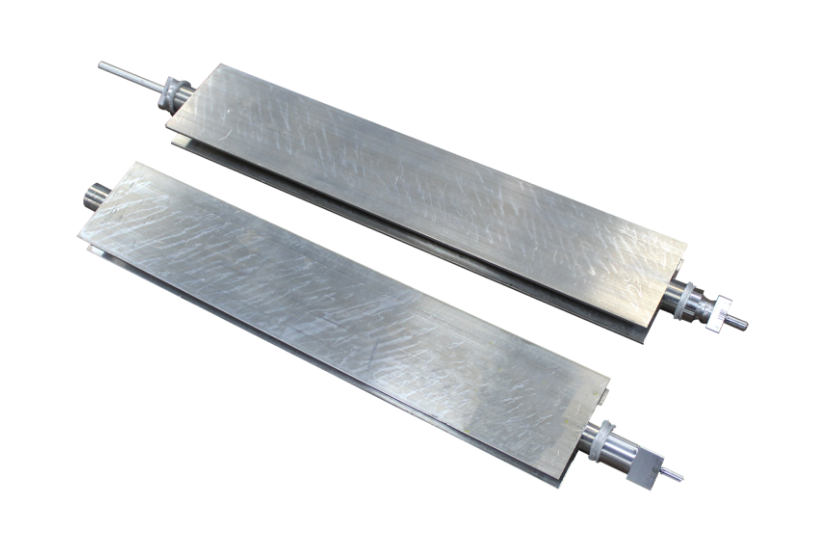

Explore Our Sample Parts
Browse our sample parts to discover applications, materials, and geometrical fittings for your next innovation.
Contract Manufacturing Services
We don’t just build machines, our Contract Manufacturing Services team operates them too. From part design to production, we have you covered.
Contract Manufacturing Services
We don’t just build machines, our Contract Manufacturing Services team operates them too. From part design to production, we have you covered.
Learning Center
Case Study
Videos
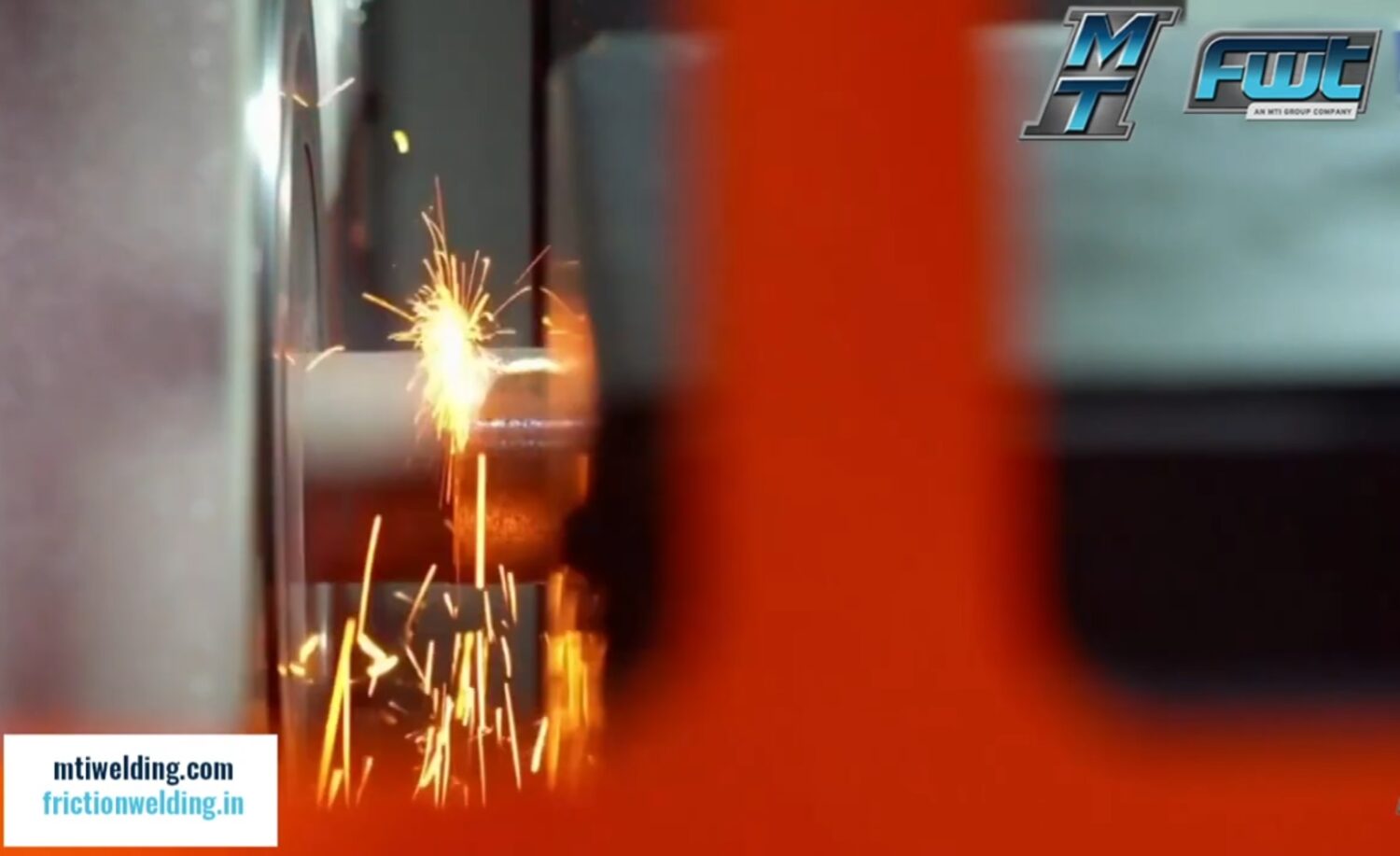

Direct Drive
